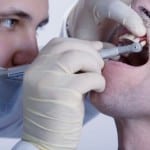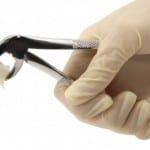 If you injure a tooth or your tooth is severely decayed or damaged, extraction may be the best course of action. Many people worry about tooth extraction, but your dentist will take the necessary steps to help prevent pain and facilitate rapid healing. Extracting a tooth is usually recommended when there is no ay of saving the tooth; in this case, removing the tooth can help to prevent damage to the surrounding teeth and dental infection.
If you injure a tooth or your tooth is severely decayed or damaged, extraction may be the best course of action. Many people worry about tooth extraction, but your dentist will take the necessary steps to help prevent pain and facilitate rapid healing. Extracting a tooth is usually recommended when there is no ay of saving the tooth; in this case, removing the tooth can help to prevent damage to the surrounding teeth and dental infection.
What happens when a tooth is extracted?
The teeth are held firmly in place by roots and the roots are loosened before the tooth is pulled out to reduce discomfort and damage to the surrounding gum tissue. Before this stage of treatment is carried out, the tooth will be numbed using local anaesthetic, so you won’t feel any pain. Once the effects of the anaesthetic have become apparent, your dentist will use specially designed dental pliers to gently pull the tooth from side to side; this will loosen the tooth in its socket. Once the tooth is moving freely, your dentist will pull the tooth, releasing the roots.
After tooth extraction there may be minor bleeding and pressure will be applied to the socket to stem blood flow and start the healing process.
What happens after tooth extraction?
After you’ve had a tooth extracted, it’s important to take it easy and avoid doing anything strenuous. As the anaesthetic wears off, you may start to experience mild pain; pain should be short-lived and you should be able to ease it using over the counter painkillers. If you have severe pain or pain that is getting worse, don’t hesitate to get in touch with your dentist. For the first 24 hours, try to avoid drinking alcohol and eating anything hard or chewy and take care with hot drinks shortly after the procedure, as the anaesthetic may prevent you from feeling a burning sensation. When you go to bed, try to prop your head up a little higher than usual using an extra pillow or a towel under your pillow; this will help to reduce the risk of bleeding. Take extra care when brushing your teeth around the affected area.









